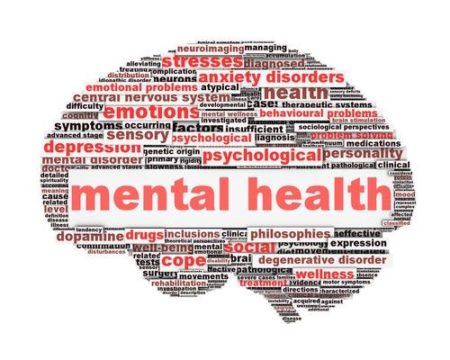29 October 2024
By Roger Kennedy
roger@TheCork.ie
As winter sets in, many of us may notice the impact of shorter days and colder weather on our mental well-being. While some experience a natural shift in mood and energy, for others, winter can contribute to feelings of isolation, lethargy, or low mood. However, with the right strategies, winter can also be a time of growth and emotional resilience. Therapy plays a vital role in this process, offering tools and support to manage mood and maintain a positive outlook.
The Impact of Winter on Mental Health
The winter months in Ireland are characterised by grey skies and early nightfall. While cosy nights in have their appeal, this season can also foster feelings of isolation and low mood. Reduced sunlight exposure affects our body’s serotonin and melatonin levels, influencing sleep, mood, and appetite. It’s natural to feel these shifts, but they can overwhelm some, affecting daily functioning and quality of life.
Research shows that proactively managing mental health can prevent seasonal symptoms from becoming severe. By focusing on small but meaningful lifestyle adjustments, we can create a foundation for resilience throughout winter. Therapy—whether it’s Cognitive Behavioural Therapy (CBT), EMDR, or another approach—can provide support to navigate this time of year more smoothly.
Why Therapy Can Be an Essential Part of Winter Wellness
For many, the thought of therapy might seem intimidating. However, it can be an effective way to explore mental health issues and develop strategies to address them. Seeking therapy during winter can be particularly beneficial, providing a structured approach to managing low mood, anxiety, or stress intensified by the season.
Therapies like CBT and EMDR offer practical tools for addressing negative thought patterns and emotional responses. These evidence-based approaches can help create mental space to reflect and engage with our inner world without becoming overwhelmed. Therapy can empower you to set and achieve realistic goals for mental wellness, especially when life feels more challenging. For more information about my therapeutic services, visit www.ceangail.ie.
Cognitive Behavioural Therapy (CBT) for Winter Challenges
CBT is a powerful tool for managing mood during winter. By focusing on how our thoughts affect our emotions and behaviours, CBT encourages us to identify and reframe negative thinking patterns that might arise when days are shorter. For example, if winter brings feelings of isolation, CBT can help develop ways to counter those feelings with more supportive thoughts and actions.
Sessions may include setting small, achievable goals—like engaging in outdoor activities or practicing gratitude—that can significantly enhance mood. These strategies address winter-specific challenges and lay the groundwork for a healthier outlook year-round.
EMDR Therapy for Addressing Seasonal Triggers
If winter triggers difficult memories or feelings, EMDR (Eye Movement Desensitisation and Reprocessing) therapy can be effective. EMDR helps individuals process and move beyond painful memories or traumatic experiences, reducing emotional distress. For those who may associate this time of year with challenging memories, EMDR can be a meaningful way to work through those associations and move forward with less emotional weight.
Therapists trained in EMDR guide clients through safe, effective processing, changing how past experiences impact the present. This approach makes it easier to enjoy winter without the burden of old stressors or fears.
Small Actions, Big Impact: Practical Tips for Winter Wellness
Therapy can also guide individuals in developing daily practices to maintain a stable mood. Here are some therapist-recommended tips that can help support mental well-being throughout winter:
- Embrace Natural Light: Exposure to natural light can significantly affect mood. Spend time outdoors when possible or consider light therapy.
- Stay Physically Active: Regular physical activity, whether a short walk or workout, releases endorphins and promotes well-being.
- Prioritise Social Connections: Connect with friends, family, or support groups during winter to counter feelings of isolation.
- Practice Mindfulness and Self-Compassion: Learning to observe thoughts without judgment is valuable. Techniques from Internal Family Systems (IFS) therapy can help navigate inner criticism.
- Set Realistic Goals: Focus on achievable goals, rather than lofty resolutions, to promote a positive mindset and sense of accomplishment.
Therapy as a Foundation for Long-Term Wellness
The winter months provide a unique opportunity for introspection and growth, and therapy can anchor this journey. In Cork, local therapists are available to support those seeking help with anxiety, depression, trauma, and other challenges. By reaching out to a professional, you can establish a self-care routine that lasts well beyond winter.
If you’re ready to take proactive steps toward managing your mental health this season, consider exploring the options available in Cork. Whether it’s CBT, EMDR, or another approach, therapy can offer tailored support to meet your unique needs.
Take the First Step
Winter may be challenging, but with the right support, it can also be a time of meaningful personal growth. Reach out to a therapist in Cork today to learn more about how therapy can help you thrive this winter and beyond. Embrace the season with a stronger foundation for mental wellness and make this winter one of positive change and resilience.
James Lloyd is a Cork-based psychotherapist specialising in trauma therapy, including CBT, EMDR, and Internal Family Systems (IFS). He operates his practice in Cork City and Fermoy, providing compassionate, evidence-based support to clients seeking mental health and wellness services. James is accredited by the IABCP and EMDR All-Ireland, with advanced training in trauma-focused techniques. For more information or to book an appointment, visit www.ceangail.ie


